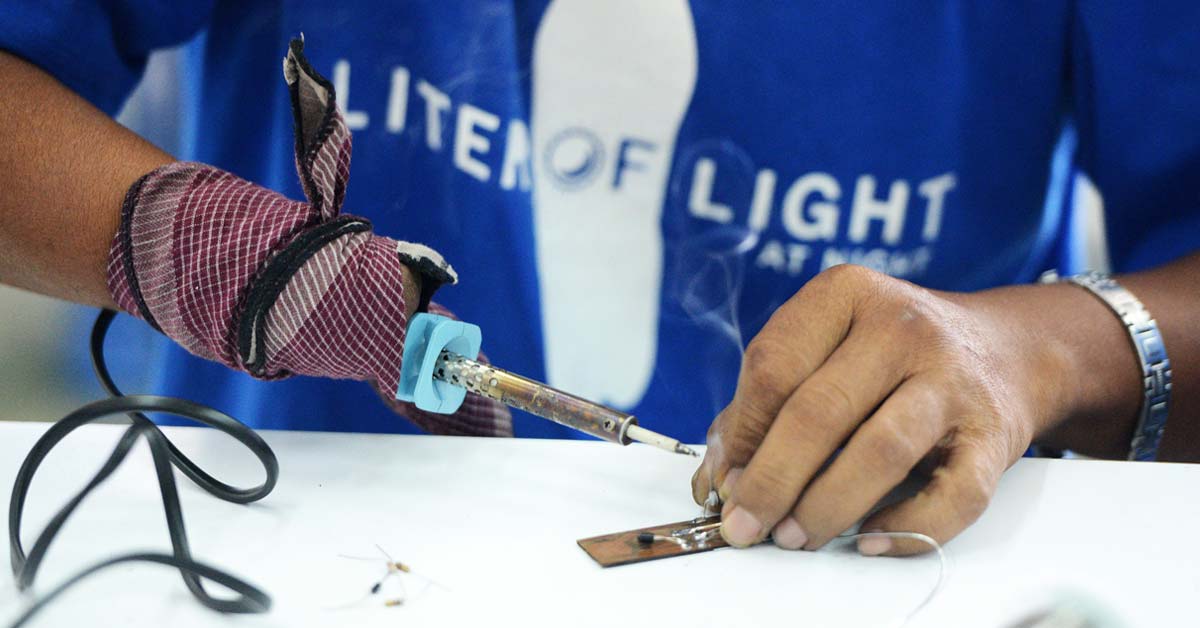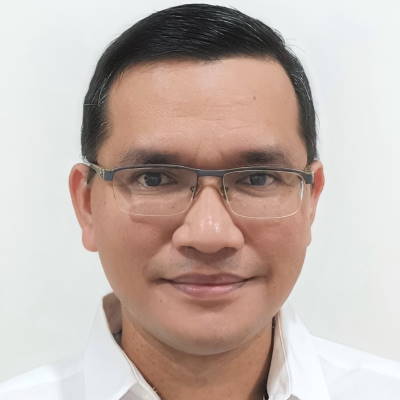The COVID-19 pandemic has increased the youth unemployment rate in Indonesia. It has also affected the employment opportunities for young people (18-29 years old) with disabilities (PWD).
In February 2021, Statistics Indonesia noted that the total number of persons with disabilities who were of working age was 17.7 million, with 7.8 million employed. These statistics mean that the Labour Force Participation Rate for persons with disabilities was only 44 percent, far below the 69 percent of general employment or National Labour Force Participation Rate.
Not only that, a 2021 research by The SMERU Research Institute on the Socio-Economic Impact of COVID-19 on Households and Strategic Policy Recommendations for Indonesia stated that households with disabled members experienced higher losses of income and jobs. One in ten households with mildly-disabled family members experienced job loss due to the COVID-19 pandemic.
Meanwhile, eight out of the ten households experienced an income decreased compared to before the COVID-19 pandemic. Aside from that, families with severely disabled members were not able to access the health care and services they needed.
The data and research above show that the COVID-19 pandemic has a double impact on young people with disabilities.
Societal stigma, which looks at PWD as objects of pity or as suffering from a disease, still presents obstacles to PWD in accessing decent work and exercising other rights.
Some reports including from the Indonesia Ministry of Manpower and International Labor Organization (ILO) mentioned that another obstacle is the hesitation or unwillingness on the part of employers. Many companies or organisations fear the difficulties in communicating and coordinating between employees with disabilities and non-disabled employees. In addition, providing special or supportive facilities for employees with disabilities is often considered burdensome.
Indonesia is among the signatories of the United Nations Convention on the Rights of Persons with Disabilities (CRPD), which it ratified in 2011 (Law no. 19, 2011). Prior laws, including (no. 4, 1997) helped to shift the legal paradigm around PWD from” sympathy" to "empowerment”.
In 2016, new legislation (Law No. 8) went beyond workplace protections and prescribed PWD rights to involvement in all aspects of life - including economic activities. A strong message regarding the inclusion of PWD in the labour market appears in Article 53, which requires companies to accommodate PWD - at least one percent of the employees for private companies and two percent in government and state-owned enterprises (BUMN).
In addition, the Indonesian government has created laws to ensure PWD's rights at the workplace. PWD are guaranteed their rights to obtain the same wages as non-disabled workers; receive adequate accommodation in employment; not be dismissed for reasons of disability; and have fair, proportionate, and dignified work placements.
Yet, while the Indonesian government has made positive strides in protecting the rights of PWD at work, we need further efforts to enforce these laws and policies to ensure these good intentions are not only on paper.
The implementation of Law No. 8, 2016, is far from perfect.
Statistics Indonesia noted that only 0.18 percent of the working-age population with disabilities worked in Indonesia in 2020. On the other hand, there is no reward and punishment for companies or organisations implementing or not implementing the Law no. 8, 2016.
All relevant parties need to do their part to fulfil the rights of PWD in obtaining decent work, including the government, private companies, civil society, and NGOs.
Since November 2020, Yayasan Plan International Indonesia (Plan Indonesia) has been helping young people improve their employment prospects through a market-driven vocational and job-matching program called Bridges to the Future (BTF). The BTF programme, supported by Google.org, aims to equip 5,200 young people in Indonesia - including youth with disabilities, with relevant skills and support them to access job opportunities.
Through BTF, Plan Indonesia is working with companies to secure hiring and training commitments, generating evidence of effective job-matching strategies to scale-up post the pilot period, and strengthening existing multi-stakeholder engagements with governments and the private sectors.
Plan Indonesia calls on stakeholders across society to work together to realize the rights of PWD for decent livelihoods, as stated in the Sustainable Development Goal 8: “…. sustained, inclusive and sustainable economic growth, full and productive employment and decent work for all.”
The views expressed in this article are the author’s own and do not necessarily reflect those of The ASEAN Post.

